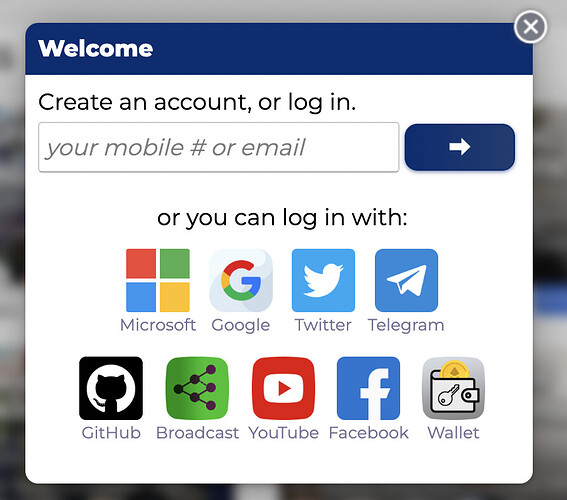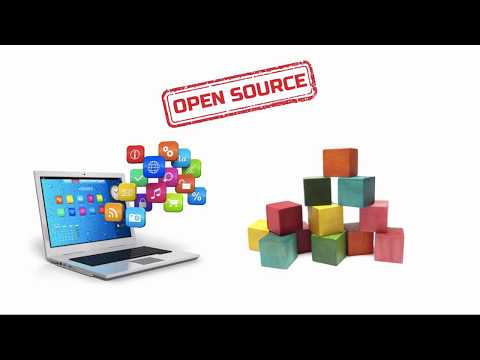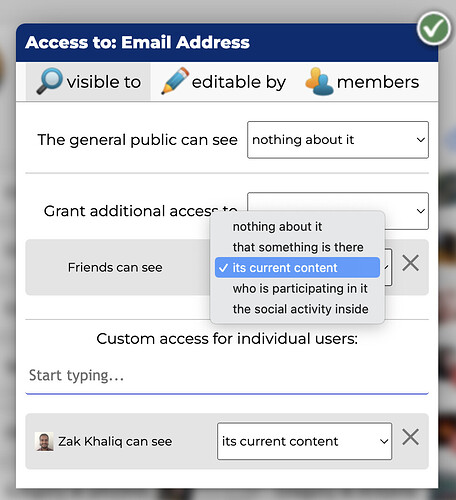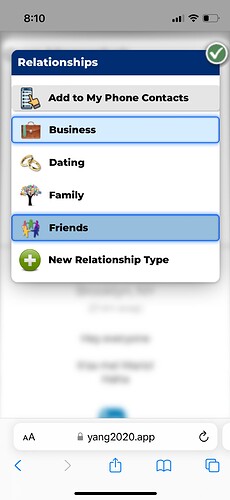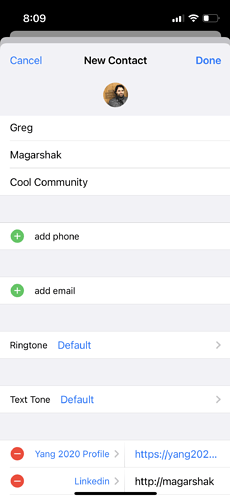Qbix attempts to streamline everything and make it simple, so you can focus on doing what you actually want to do. Developers can build new functionality. Hosting companies can make sure it runs smoothly. Communities can serve their members and let them connect, while outsourcing development and hosting to a free market of service providers.
And users… well, users can become familiar with the following login process across all the sites built on Qbix:
This is how Qbix can give you the best of both worlds: be in full control of your community, host it on servers of your choice, but at the same time you can connect it with all these external platforms, to benefit from the friend connections you have there, and even livestream your broadcasts there. Although you might prefer Qbix’s native peer to peer broadcasts instead ![]()
Servers and Apps
Apps built on Qbix Platform may be installed on many different web servers on the Internet, and made available through various host names such as hub.com or username.hub.com . Each Qbix Server would come with a database (powered by MySQL, for instance) which stored information about the users and data streams on that server.
These data streams can enable a large and growing number of features (e.g. chats, events, , videoconferencing, etc.) They enable marketplaces, dating sites, and booking appointments with local vendors.
Apps are built by Developers, and can include various Plugins from developers around the world. Together, people collaborate on a growing snowball of code. One Qbix App can be hosted on many different Servers, and Qbix Platform helps its users come together in a decentralized way on an as-needed basis.
Communities around the world can simply install these Apps on Servers of their choice – and use them even without the internet!
Communities
In Qbix, a Community is technically just another User. Instead of Relationships like “Friends” and “Family”, it has Roles like “Admins” and “Teachers”. The roles people have in a community determine what they can do in it. Admins might be able to manage the community’s own branding, SEO, locations. Hosts would be able to take turns hosting a regularly scheduled show online. Moderators may be able to take actions in chats hosted by the community, or screen calls into the show.
Communities can offer other roles, such as memberships in an “inner circle” or cohorts in a semester of learning. Whether you already have an existing community, or want to grow a new one, Qbix can help you organize it. It’s way more flexible than the Big Tech platforms.
Roles and Permissions
Users can belong to multiple Communities across different Servers, and have various Roles in them. The Qbix Servers check these Roles when deciding whether to allow reading, writing or managing a specific stream of data. Once again, Qbix has standardized a system of system of access levels that admins can learn to assign to different roles. And similarly, individual users can specify who can see certain things, such as their email, mobile number or Web3 blockchain address:
For example, if Jane meets Greg at a party, Greg can offer Jane to scan his QR code and seamlessly join his Qbix Server. Greg can also put Jane in his “Business” relationships, allowing her to see his email address when she presses a button and saves him in her native Phone Contacts.
Web3 Integration
Some roles are so crucial to the community that you might want to manage them on a blockchain with Web3 smart contracts built by Intercoin. This is done using the same interface as above, but in the back-end, the roles are being read from an external platform. (Using this same mechanism, Qbix Servers can manage information based on your relationships on Twitter or Facebook!).
You can also run elections on a blockchain in order to be sure that a given role was duly elected by the community. Then, the elected people can appoint other people into various positions by granting them roles. This can also be used to raise money for your project and then use it to reward teams who compete to perform jobs for the community.
